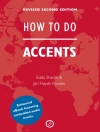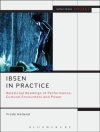Adapted by James Ivory from André Aciman’s novel and directed by Luca Guadagnino, the film Call Me by Your Name has been passionately received among audiences and critics ever since its 2017 release.
A love story between seventeen-year-old Elio (Timothée Chalamet) and graduate student Oliver (Armie Hammer) and set in 1983 ‘Somewhere in northern Italy’, Call Me by Your Name presents a gay relationship in a romantic idyll seemingly untroubled by outside pressures, prejudices or tragedy. While this means it offers audiences welcome opportunities to swoon in front of an LGBTQ+ romance that equals classic heterosexual romances onscreen, its relevance or political significance today may not be immediately apparent. And yet the film is abundantly infused with narrative, thematic and stylistic elements that can be interpreted as speaking powerfully to contemporary audiences on questions of sexual identity.
This edited collection addresses how the film helps inform our understanding of contemporary sexual identity and romance. How does this love story explore wider tensions that exist between the specific and the general, between the open and the hidden, and between the past and the present? The contributors to the collection explore these questions in stimulating and contemplative manners.
قائمة المحتويات
List of Figures
List of Tables
Acknowledgements
Introduction: Somewhere in Northern Italy – Edward Lamberti and Michael Williams
Part I: Style
Part II: Themes
Part III: Reception
Notes on Contributors
Index
عن المؤلف
Edward Lamberti is the author of Performing Ethics through Film Style: Levinas with the Dardenne Brothers, Barbet Schroeder and Paul Schrader (Edinburgh University Press, 2019) and the editor of Behind the Scenes at the BBFC: Film Classification from the Silver Screen to the Digital Age (BFI/Palgrave, 2012; longlisted for the 2013 Kraszna-Krausz Book Award for Best Moving Image Book). He has a Ph.D. in Film Studies Research from King’s College London and he works at the BBFC.
Michael Williams is Professor in Film at the University of Southampton. He is author of Film Stardom and the Ancient Past: Idols, Artefacts and Epics (Palgrave Macmillan, 2018) and Film Stardom, Myth and Classicism: The Rise of the Hollywood Gods (2013). He has widely published on stardom and with a particular focus on queer imagery and reception, and is also author of Ivor Novello: Screen Idol (BFI, 2003) and co-editor of British Silent Cinema and the Great War (Palgrave Macmillan, 2011).












